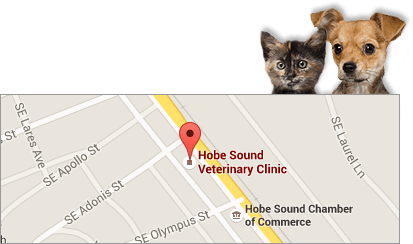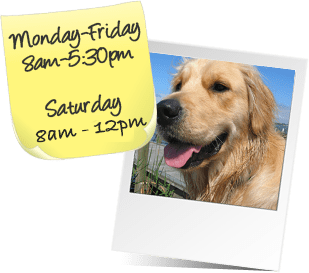Sneezing is a natural reflex for clearing the nasal passages in humans and animals alike. However, if you find your dog won’t stop sneezing, it may signal something more than just a tickle in their nose. “Help! My Dog Won’t Stop Sneezing” explores the various reasons behind frequent canine sneezing—from playful gestures to potential medical concerns. Whether it’s an innocuous play-sneeze or a symptom of allergies, this article dives into the causes, implications, and solutions for your dog’s sneezing. If your pet’s sneezes have become a regular occurrence, discovering the reasons can be crucial for their comfort and health.
Just like you, your dog sneezes sometimes. Most often, it’s simply because small particles of dust, dirt, grass, or other materials make their way into the nasal passages—your dog uses their nose to explore the world, after all. But what happens if your dog sneezes frequently, or won’t stop sneezing?
Here are some of the most common reasons that dogs sneeze:
Play Sneezing
Did you know that most dogs sneeze when they’re playing? Whether your dog is playing with another canine or with a human, you’ll probably see them sneeze a few times. Experts believe this is your dog’s way of showing other dogs that their play is good-natured, rather than threatening. Watch out for the play-sneeze the next time your pooch gets riled up!
Allergies
Another common reason that dogs sneeze is because of allergies. Environmental allergens are the usual culprit. Things like pollen, dander, mold, dust and dust mites, dirt, and much more can cause symptoms like a runny nose, watery eyes, and—you guessed it—excessive sneezing. And even food allergies can cause sneezing, so your dog could be reacting to the protein source or things like soy or dairy in their diet. Talk to your vet if you think your dog might be suffering from allergies. Allergy medication might be necessary for your pup to feel better. In some cases, supporting your dog’s overall health with Probiotics for Pets may also help boost their immune system and potentially alleviate allergy symptoms.
Talk to your vet if you think your dog might be suffering from allergies. Allergy medication might be necessary for your pup to feel better.
Brachycephalic Airway Obstruction Syndrome (BAOS)
Brachycephalic dogs (those with squashed faces and bulging eyes like the Pekingese, French and English Bulldog, boxers, pugs, and the Boston terrier) are prone to breathing trouble thanks to their narrow nasal passages and unique airway structures. Symptoms of Brachycephalic Airway Obstruction Syndrome include wheezing, snorting, and sneezing. If you have a Brachycephalic dog, ask your vet what you can do to help your pet stay comfortable.
Reverse Sneezing
In addition to normal sneezes, dogs also “reverse sneeze” on occasion. This happens when a dog snorts air into their nose quickly, which sounds almost like a sneeze. It can be alarming, but it’s perfectly normal and nothing to worry about. It’s most common in smaller dogs, including Brachycephalic breeds.
Medical Issues
Of course, it’s possible that medical problems like kennel cough, respiratory infections, nasal mites, and much more could be the root cause of Fido’s sneezing. If you can’t determine another cause of your dog’s behavior, set up an appointment with your vet clinic.
When Your Dog Won’t Stop Sneezing: Understanding Duration and Causes in 2024
How long should sneezing persist before it becomes a concern?
Sneezing in dogs is often benign, but if it persists for more than a couple of days or is accompanied by other symptoms such as a runny nose, eye discharge, or lethargy, it warrants further investigation. Frequent sneezing can signal allergies, respiratory infections, or even more serious conditions. If the sneezing doesn’t resolve with rest or escalates, it’s advisable to consult a veterinarian to rule out underlying health issues and ensure the appropriate treatment for the dog’s comfort and well-being.
Can dental problems cause sneezing in dogs?
Yes, dental problems can indeed cause sneezing in dogs. Issues such as tooth abscesses or gum disease can lead to infections that may spread to the nasal sinuses, triggering sneezing. The proximity of a dog’s upper teeth to their nasal passages means that dental health issues can directly affect their nasal area. If sneezing is accompanied by bad breath or discharge from the nose, it’s advisable to consult a veterinarian to check for any underlying dental problems that might be contributing to the sneezing.
What should owners do if they suspect their dog has inhaled a foreign object?
If owners suspect their dog has inhaled a foreign object, it’s important to act promptly. Symptoms to watch for include excessive sneezing, nasal discharge, or difficulty breathing. Immediate veterinary attention is crucial to prevent complications such as infection or airway obstruction. The vet may perform imaging studies like X-rays or an endoscopy to diagnose and potentially retrieve the object. Keeping a close eye on the dog’s behavior and respiratory health during this time is essential for their well-being.
Can nasal tumors cause sneezing in dogs?
Yes, nasal tumors can cause sneezing in dogs. When tumors develop in the nasal passages, they can lead to obstruction and irritation, prompting frequent sneezing. This symptom is often accompanied by other signs such as nasal discharge, sometimes with blood, or facial deformity as the tumor progresses. It’s crucial for dog owners to observe any persistent changes in their dog’s sneezing patterns and consult a veterinarian for a thorough examination, as early detection can significantly affect the management and outcome of nasal tumors.
Are there any home remedies or immediate actions owners can take to help a sneezing dog?
When a dog exhibits frequent sneezing, owners can initially try removing potential environmental irritants, such as pollen or dust, by ensuring clean, well-ventilated living spaces. Additionally, if allergies are suspected, altering the dog’s diet to eliminate common allergens like soy or dairy might help reduce symptoms. For immediate relief, gently massaging the dog’s throat or covering its nostrils briefly can sometimes trigger a swallow that helps clear any nasal irritants. However, if sneezing persists or is accompanied by other symptoms, consulting a veterinarian is crucial to rule out more serious conditions.
Contact your local vet clinic in Hobe Sound, FL for more information on your dog’s sneezing. If you suspect your dog’s sneezing is due to allergies or skin irritations, our Pet Allergies and Veterinary Dermatology services can provide specialized care to address these issues and help your furry friend feel more comfortable.




